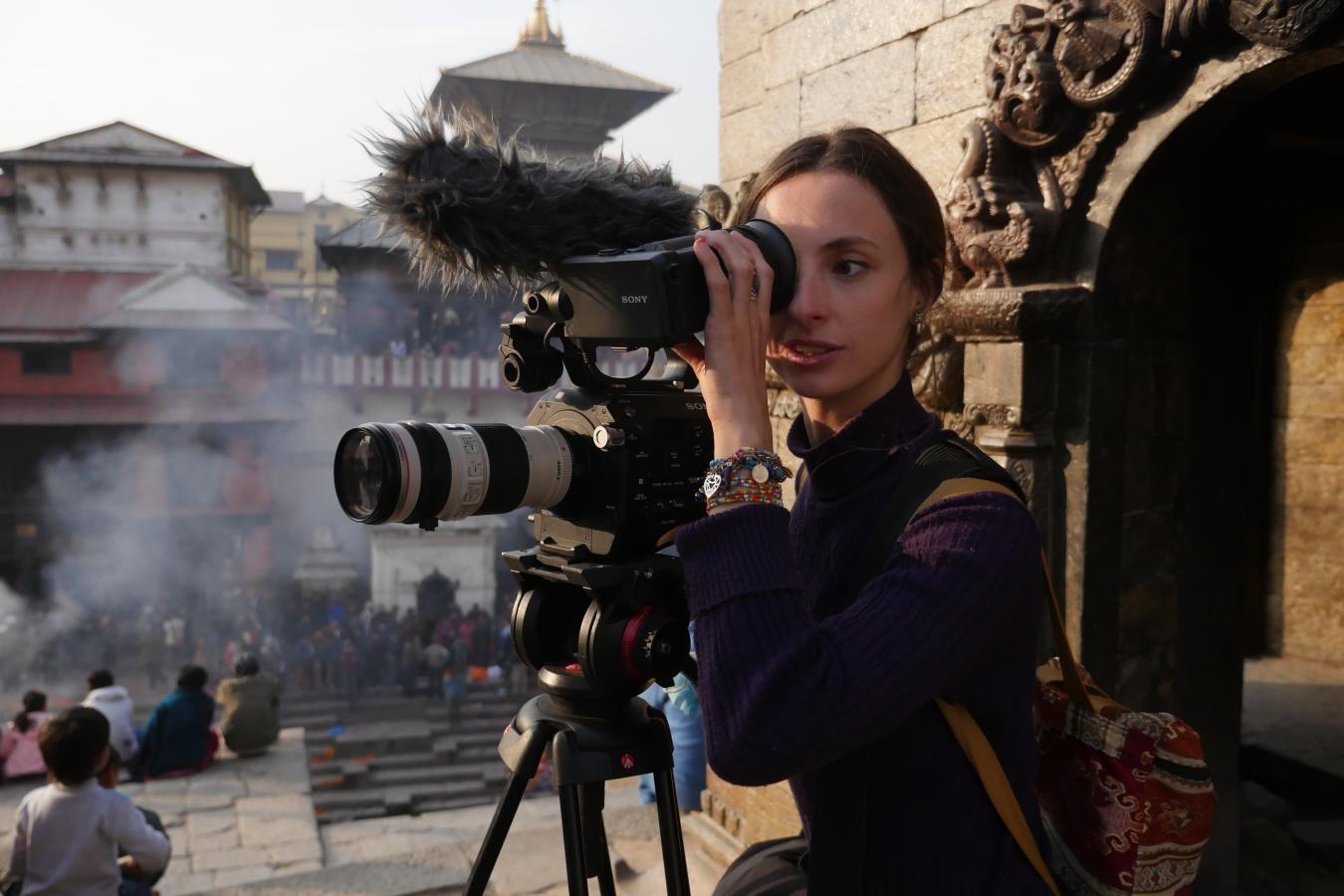Finalist, Elisa Nadal, came to the US from Brazil in 2006 to participate in the Summer Work Travel program. Since her program, she has filmed documentaries all over the world and is attending film school in Germany. Read more to hear how the SWT program influenced her film career.
Can you please tell us about your SWT experience?
When I came to the US I worked at Mountain Road Resort in Vermont. I worked in housekeeping so I helped with cleaning and breakfast. I met lots of friends, I met people from Peru, Russia, Brazil and lots of Americans. They are still my friends today. Some of them came to visit me in Germany. It was amazing how you were able to connect with people.
I would never do housekeeping in Brazil because in Brazil I have a different level of life going to the university. It makes you respect those people more and understand that it’s just a task that needs to be done. It’s very interesting to go outside of the bubble of your country and your life and for a few months live this other, new life. It’s amazing.
How did your J1 experience change your perspective on the US and its people?
Doing this program was very inspiring because after that I wanted to travel a lot and see more cultures. I did the program because my brother did it. I was curious about it but I was afraid because I thought people in the US would not be as friendly as Latino people like in Brazil. But it was the opposite for me, I went to Vermont which is a very rural area in the United States, so it just wasn’t the image I expected of buying a lot and huge shopping centers. It was very beautiful, lots of nature, friendly people. I was not expecting it.
Can you tell us more about your filmmaking career?
After I finished my J1 experience in the USA, I went on a trip to Europe and I was traveling with friends and I met some people in Munich at the film school so I decided to apply. I studied Documentary Directing. It was great, I started working on different projects. It’s not exactly what I had been planning, but it happened in a very nice way. I like documentaries because I am passionate about people, and their stories and their real lives.
One of my projects was the story of a Syrian family escaping the war. I was following their arrival to Lesvos, Greece, until their final destination in Sweden. I also told the story of a transgender girl in India struggling against social prejudice and also made a documentary about a Gypsy father in Bulgaria trying to give a better future to his daughters. I have also done films in Nepal, Turkey, India and Brazil.
I coordinated a Radio Show in Munich for 2 years at Radio Lora Munchen. I also work for different companies to produce videos for them, and I am going to be working on a fictional film. I try to do a mix, not only documentaries. My first J1 experience encouraged me, because I wouldn’t have been able to be so brave to go around and travel places if it wasn’t for this program.
What is your favorite project?
My project this past year is not ready, it’s in post-production. It’s about the stages of life. We portrayed different people, like a baby and child etc., from different countries. We showed how colorful the world is and how different cultures do the same stuff like baptisms and rituals. We still have a lot of work to do, film is not an easy task.
What kind of skills do you need to be successful as a filmmaker?
Language and communication is very important. You need to be able to say what you want to say in a very clear way to people. Patience, because sometimes people can get nervous and it’s a very stressful work flow.
Why do you think cross-cultural exchange is important?
The J1 experience helped me with my English, and for the past 7 years I’ve been focused on learning German so my English got a little worse. If I didn’t do the J1 program, I could not imagine going to Europe because my English was not good at all. And I lost my fear about people. I saw a lot of different cultures and how they could get together so good, so I thought, why not continue traveling and meeting new people.
Why do you think the White House administration should reconsider cancelling the J1 program?
It’s really sad to hear that they want to cancel the program because it allows people like me to experience the United States. It allows students to travel and work a little bit, and meet people from other cultures and learn a new language. It’s good for the United States and for other countries.
Since it’s been quite a few years since you’ve been on the program, what advice would you give to yourself if you could go back in time?
Don’t be afraid, just do it! It’s a part of the whole experience to be a little bit afraid, but just open your heart and go and you will find the right people and good things will come.
I really opened up my life after these experiences. Everything I have done with film is connected to the J1 experience and it is a very good example for people to see what is possible. I’ve been able to have adventures and see the world, and my J1 experience was really the start of this. This is a very beautiful example of what you can do.
Learn more about Elisa’s film career and projects on her website.

